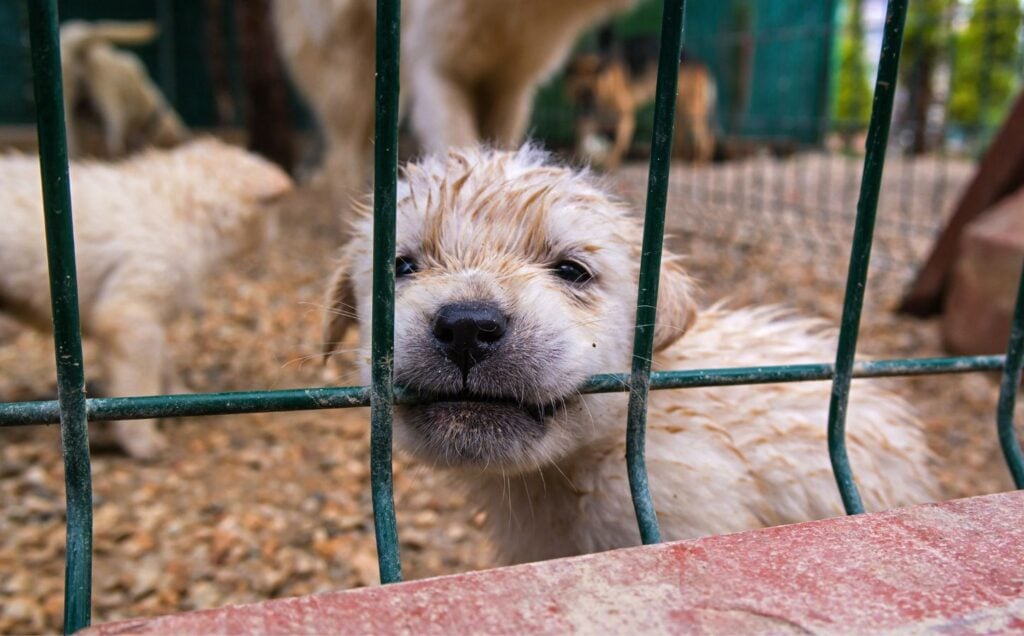Earlier this month, Indianapolis became the 450th US location to ban pet shop sales of dogs supplied by puppy mills.
Puppy mills, also known as puppy farms, are notorious for subjecting dogs to cruel and cramped conditions. These are frequently unsanitary, and dogs are regularly denied access to proper nutrition and healthcare. The locations seek to maximize the number of puppies being produced, which in turn generates substantial income for the owners. Dog welfare is rarely a concern or a priority.
Despite Indianapolis enacting the ban, it will reportedly not come into effect until May 2025. This appears to be an unusual delay. Most other regions instigate either an immediate ban or one within a few months of local laws passing.

What is delaying the Indianapolis puppy mill sales ban?
The Humane Society of the United States (HSUS) considers the delay a result of wider political activity in the state of Indiana.
“The win in Indianapolis came just days after the Indiana Senate passed SB 134, a bill designed to strip cities of their authority to do exactly what the state’s largest city just did—enact a law that stops pet stores from selling commercially raised puppies,” the animal welfare campaign group said in a statement.
“We’re confident we can stop this shortsighted, unpopular bill in the Indiana House of Representatives, but it will be a battle.”
With the original ban passing in Indianapolis, 10 of the US’s 20 largest cities now prohibit pet stores from selling puppies. These include Philadelphia and Dallas, with New York in the process of finalizing its own ban as well.
However, HSUS highlights that Petland, the only remaining puppy-selling pet shop chain in the US, is fighting back.
Petland ignores the ban
An estimated 10,000 puppy mills are thought to be in operation in the US today. This results in the selling of around 2.6 million puppies each year.
Petland sells tens of thousands of puppies each year and is widely considered to be keeping many mills active. This is despite countless incidences of legal action, including fines, for breaking local humane pet store laws.
HSUS has found that state lawmakers routinely reject Petland’s attempts to retain permission to sell puppy mill animals. However, smaller jurisdictions remain vulnerable to pressure.






